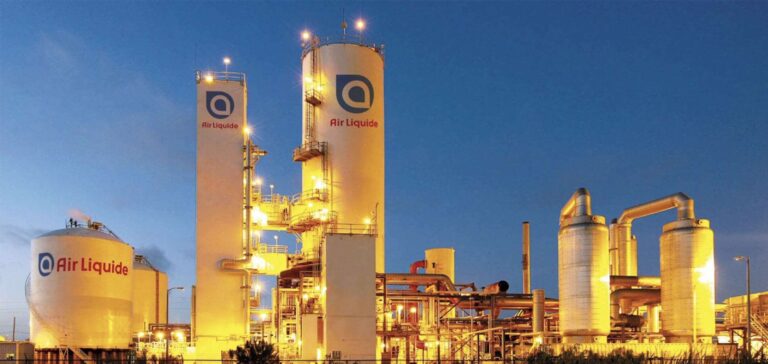Air Liquide will hold a 40% stake in H2V Normandy.
This investment will enable the construction, by 2022-2023, of an electrolyser complex with a capacity of up to 200MW. In this way, the Group is encouraging the large-scale production ofrenewable, low-carbonhydrogen in France.
Air Liquide main partner of the H2V Normandy project
A 40% equity investment in H2V Normandy
The French industrial gases giant has acquired a stake in H2V Normandy, a subsidiary of the H2V Product group.
This acquisition implies that Air Liquide will finance 40% of the 230 million euro investment planned by the Normandy subsidiary.
Read on energynews.com: Green Hydrogen: Total and ENGIE’s ambitious project
Objective: to become a major player in the decarbonization of French industry
Thanks to its experience in the field, the Group is supporting the development of “green” renewable hydrogen production worldwide.
This strategic investment demonstrates the Group’s long-term commitment to the energy transition.
Our ambition is to be a major player in the decarbonization of the industrial and mobility markets.
A complex of 25 electrolysers in Normandy
200MW of electrolysers
The group plans to build a complex of electrolysers with a total capacity of 200MW.
They are to be located at Port-Jérôme on the Seine Valley axis in Normandy, one of the French industrial gas group’s historic industrial basins.
In addition, this initiative is part of a program to develop new energies to decarbonize industrial activities.
In the future, the system will also be able to supply hydrogen for heavy mobility applications.
A unique economic opportunity for the region
According to the H2V Product spokesman, the system will be powered by certified low-carbon renewable energy sources.
The complex will also include 25 electrolysers, supplied by Norwegian company HydrogenPro.
Commissioning is scheduled for 2022-2023, with the creation of 170 direct and indirect jobs.
Ultimately, the project will save 250,000 tonnes of CO2 emissions per year.
Another step forward in the energy transition of French industry.
In fact, hydrogen is gradually making its way into the energy mix of this sector.






















